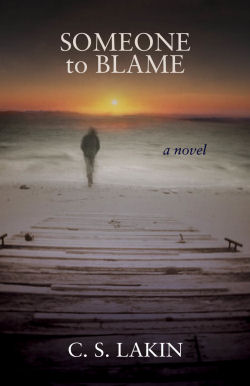|
From
time to time I make a comment on Facebook about word count. Granted—I
need to get this out of the way first—some authors are under contract
and absolutely need to schedule themselves to write a certain number of
words each day to meet a pressing deadline. I get that. Although I will
still argue that’s a skewed way to look at writing a novel. Why not
make it a goal to complete one scene or chapter a day? That’s how I set
my writing goals, but I don’t worry too much about sticking to them.
I try very hard to steer as far
away from word-count goals as possible. Sure, from time to time I check
my word count. It helps me when I think I’m halfway through a novel to
see how many words I may end up with. My novels range from 75k words to
130k words. But word count doesn’t matter at all. A book should be as
long as it takes to tell the story properly.
I have some strong sentiments
about the whole word-count issue, and they are pretty negative, because
we live in a world that puts emphasis always on quantity, not quality.
More is better. And even more is even “more better.” Some writers tend
to brag and compete with one another: “I wrote five thousand words
today.” “I wrote five thousand words today standing on my head and
cooking a gourmet dinner for eighteen people.” And so it goes. It can
make most normal nonsuperman-type writers feel just plain lousy.
Another thing: It’s not just
society but our churches have, sadly, become works-driven. You are a
good Christian if you can write a long list of all the “things” you do
to prove you are faithful. I recently listened to a CD where the
speaker asked a number of old-time, faithful believers what they would
say to God when they got to heaven and He asked, “Why should I let you
in?” Believe it or not, these people all answered with variations of
the same answer: “Oh, well, I’ve been attending church faithfully for
sixty years. I led Bible study for decades. I supported missionaries
and donated to xxx causes . . .”
Horrors! Do you see the problem?
And the wrong answer? There is only one correct answer as to why God
should allow you, me, or anyone into His kingdom, and that is “Jesus
died for my sins and paid the entrance price. I do not, on my own merit
or because of anything I did, deserve to be here.”
What does this have to do with
word count? I am not going to stand at heaven’s gate and say to God:
“Well, I wrote an average of three thousand words a day to prove I was
faithful.” Do you really think God cares about your word count? What if
you feel called to write but it takes you a lifetime to pull together a
short little story that burns on your heart? By some standards, that
means you have failed as a writer!
I
can’t tell you how relieved I felt when listening to two hugely
successful best-selling, Pulitzer prize–winning authors at the Book
Expo in New York who said that they took four to five years to write
each book. That made me feel good. I had been writing a very difficult
novel and it was stretching into a full year to complete. I felt like I
was slipping. But I needed a lot of time to think and plot out the
story. And this is my last beef about word count.
Many writers say that the
important thing is just to write. Make yourself sit down each day and
push yourself to write something, that
if you keep writing thousands
and thousands of words, inspiration will follow. I completely disagree.
Some writers who pump out thousands of words end up having very little
of
|
interest
to say. Again, it’s quantity over quality. I will say
again: I would rather write one beautiful, powerful, moving sentence
than 5,000 boring, nothing words that don’t reach a reader’s heart.
It
would be nice to believe that
inspiration and beautiful, powerful writing can be accessed like a
water pump—just turn it on full bore and let it gush and at some point
something good will spill out. Then you can throw out most of the other
stuff and keep the good stuff. I rarely hear anyone talk about mulling,
thinking, musing, ideating. I remember reading how Tony Hillerman would
often lay on his couch for hours with his eyes closed. That was the
bulk of his work. I am much the same way, but instead of lying on the
couch, I take long walks, talk out my plots and ideas and characters,
sometimes in prayer with God, other times just talking out loud to
myself somewhere secluded where no one but my dog hears me (and he
doesn’t mind).
I would like to encourage all
the writers out there to stop and think. Yes, spend more time thinking.
Avoid using those distasteful words (word count) and focus more on
quality, on planning, on letting ideas simmer. And when you sit down
and write, don’t set some arbitrary goal of how many words to stuff
into your document. Aim to write with passion and concentration, with
sincerity and significance, slowly, deliberately. And if all that comes
out of the effort is one great sentence or paragraph, allow yourself to
see that it a great end goal.
Sometimes more is said with
less. In fact, I truly believe: more is better said with less words.
The right words. I truly believe that. Chew your words, taste
them, spit out the ones that aren’t just right and only settle for a
sentence that says exactly what you want it to say. You may not get it
first time around, in a first draft, but don’t zoom through, typing
away. Stop and ponder what you are trying to say, how you want it to
sound. Let the spirit fill and lift you as you write, for if you rush
ahead mindlessly, you leave the spirit behind. And it will show.


|









